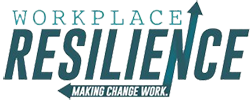 Eventually, bad things happen. You’ll lose your job, get passed over for the promotion that you were counting on or botch that humongous deal that was going to change your life.
Eventually, bad things happen. You’ll lose your job, get passed over for the promotion that you were counting on or botch that humongous deal that was going to change your life.
You will be miserable and think that life is over.
Yes, you will be incredibly disappointed and sad— that’s to be expected. However, your response to this life disappointment will greatly impact what comes next. Your resilience in the face of disaster will determine your success.
The bottom line is that your sense of control in each life event greatly influences the eventual outcome. Do you see life in a reactive mode? Do you feel like things happen to you? Or do you have a strong sense that you can control and manage life in a proactive manner? Do you live your life making things happen? This mind-set makes the difference in your ability to face adversity.
I have developed some questions that might help you take more control in your life and positively change your direction when bad things happen.
Ask Yourself:
- How does it serve me to stay where I am right now?
For example, say you just found out that your boss didn’t take responsibility for a mistake, but instead, blamed it on you. You are angry, hurt, devastated and disappointed. You are wondering why this happened to you and why you are so unlucky. However, how does it serve you to stay in these feelings right now? How will you benefit in any way? Sometimes when we’re hit with bad news, we can get stuck in the feelings, and those feelings can spur us on to make some really bad decisions.
- What can I control in this situation and what is beyond my control?
This is an important question to ask yourself because it gets you out of a victim mentality and into a more positive, proactive frame of mind. You can’t control what just happened, and you certainly can’t make the whole situation disappear. You have no choice but to accept that this has taken place. Now give some thought as to what you can control. You can control what plays out next in the storyline. You can control what action you decide to take next.
- How can I improve the current situation?
Now is the time to brainstorm. I want you to write down all the possible ideas that come to your mind. Don’t leave anything out just because it sounds crazy or not realistic to you. Be creative and write every type of ending you can think of for your storyline. Try not to judge or evaluate these ideas for now— just let your mind run wild and come up with scenarios.
For example, remember the previous situation with your boss? You can have a talk with your boss and calmly ask why. Or, you can confront him and demand answers. Or, you can immediately start looking for another job. There are many, many choices you can conjure up in your mind.
- Now evaluate these choices and number them in order of best ideas. Consider the outcomes for each idea. If you are proactively controlling the situation, you will have a number of action steps that you have created on your list.
- What have I learned from this experience?
Be sure to not skip this step! Is there something that you would like to do differently next time? There is always a lesson that you can glean from every situation. Do some soul searching and be honest.
Becoming truly resilient is a process. The more you practice, the more resilient you become in riding the waves of life.




